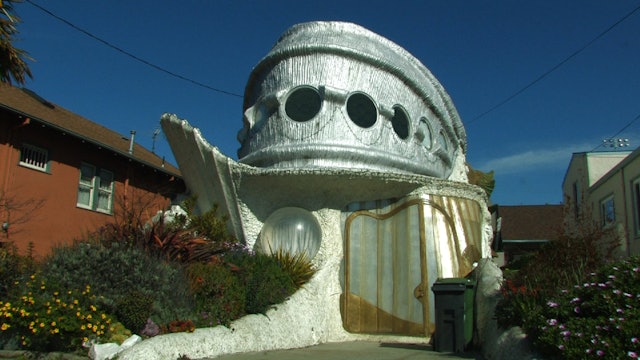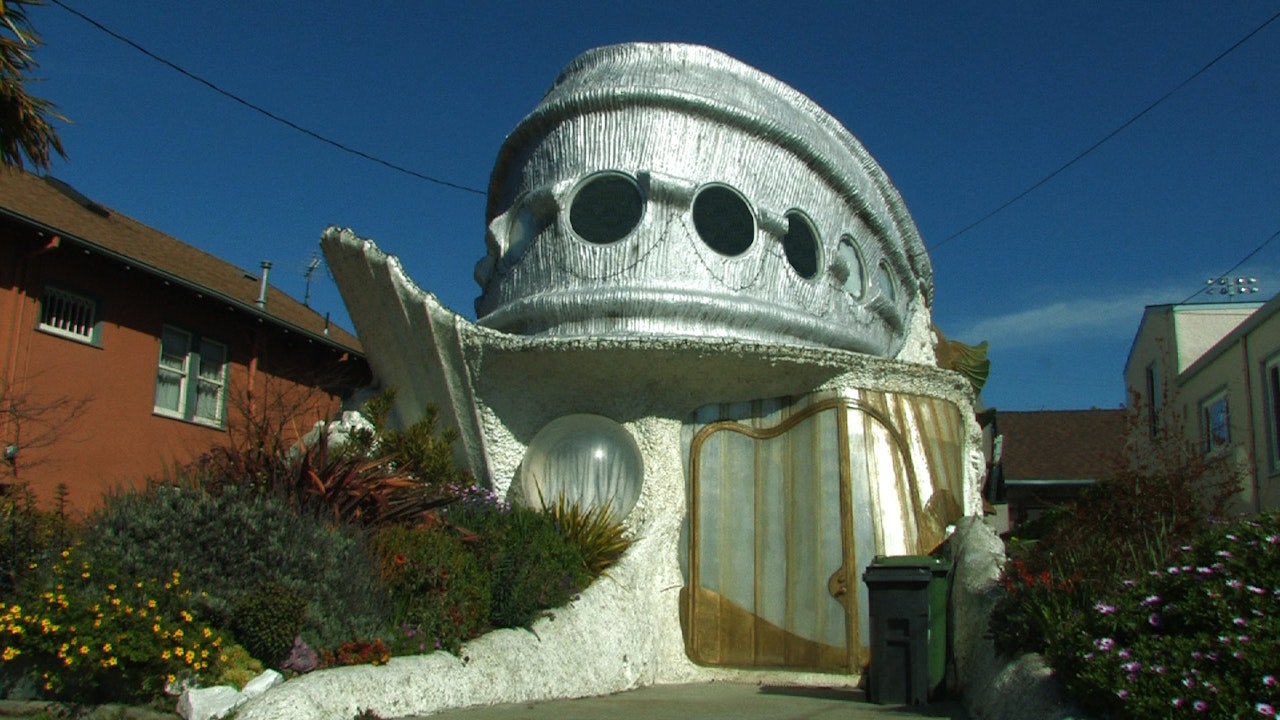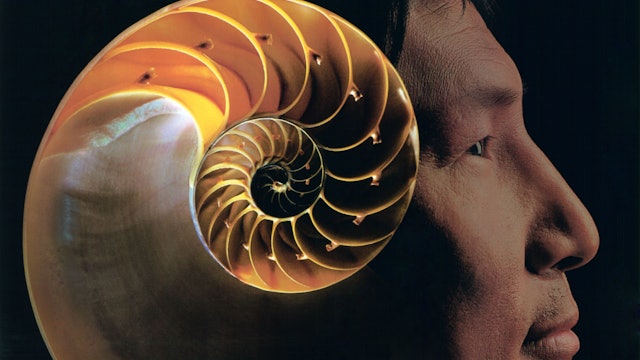Telos - The Fantastic World of Eugene Tssui
“Telos: The Fantastic World of Eugene Tssui” presents the vision of a maverick architect inspired by nature’s form and function. Tssui’s ideas, always focused on sustainability, have been ahead of their time for over thirty years. Tssui is a man who, in his own words, is trying to do no less than to “change the world.”
“Telos” constructs a complex portrait of a fascinating character fueled by unswerving self-assuredness and unyielding creativity. The opening montage introduces his aesthetic, featuring architectural models with vibrant colors and unusual shapes that conjure images of enormous plants, birds or insects. Undaunted by the slow pace of acceptance for his radical ideas Tssui sports a serious expression…and a high-collared, purple sequined suit. What first appears to be a questionable fashion choice is later explained as the prototype for a wearable, solar energy capture system. His non-conformist attire is another avenue for Tssui to explore his pedagogical principles: conscious design for social evolution with creativity as an integral factor. There is more to this man than first meets the eye.
The film offers intriguing glimpses into Tssui’s accomplishments as a modern day Renaissance man: architect, clothing designer, world-class athlete, musician, family man, social theorist, and gifted visual artist. Images from his personal archives are highlighted through the select use of animation, cinema vérité, and interviews contextualize his life and work, including rare archival footage of Tssui with his mentor Bruce Goff. Goff was in turn a mentee of Frank Lloyd Wright, thus placing Tssui in direct lineage with notable architectural renegades now celebrated for their anti-establishment, organic designs. Key scenes in the film cover the Not-In-My-Backyard controversy over the residence Tssui built for his parents in Berkeley, California. The bulbous structure known as Fish House was designed to withstand natural disasters by being modeled after an insect described as "the world's most indestructible living creature." The public battle for planning permission foreshadows the present day campaign to realize Tssui’s dream project in Mount Shasta.
Mount Shasta, California is where Tssui is shown planning to build a visitation center for the public to learn about what he terms “evolutionary architecture.” Shasta is also the site of a myth that claims an advanced civilization exists in an underground city deep below the mountain. By true coincidence, both Tssui’s project and the myth are both called Telos. This serendipity verifies the Shasta’s New Age community’s beliefs. They regard Tssui as a messianic figure, a role he does not shun, and one for which he is aptly dressed. Conservative and doubtful voices in the local government are shown speculating about the town’s readiness to accept Tssui’s futuristic design proposal, one that readily conjures up the standard image of a saucer-shaped UFO. “Telos” the film spurs the audience to contemplate the role and value of radical thinkers in society and to question our impulse to ridicule those who think outside the box.
-
Telos - The Fantastic World of Eugene Tssui
“Telos: The Fantastic World of Eugene Tssui” presents the vision of a maverick architect inspired by nature’s form and function. Tssui’s ideas, always focused on sustainability, have been ahead of their time for over thirty years. Tssui is a man who, in his own words, is trying to do no less than...



